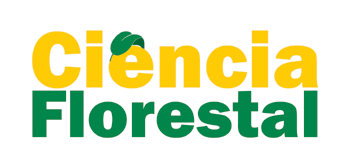ABSTRACT
Although Brachiaria is an important forage grass for many regions of Brazil, when it occurs in native areas, represents a problem for the functioning of natural ecosystems and threats to plant diversity. The objective was to evaluate three methods of control of Brachiaria, using cover plants and plastic coverage. The study was carried out in banks of Ponte Alta River, Gama, DF, Brazil, an area in process of restoration. The experimental design was three complete randomized blocks in a factorial (4 types of treatments x 2 times), with three replications. The treatments were installed in March/2013 (1st) and December/2013 (2nd), as follows: T1 - planting peanut-forage seedlings (Arachis pintoi Krapov W.C. & Greg.); T2 - plastic coverage (1.20 m x 2 m); T3 - seeding of Stylosanthes Campo Grande (Stylosanthes capitata Vogel + Stylosanthes macrocephala M. B. Ferreira & Sousa Costa) and T4 - control. The monthly monitoring of the percentage of coverage of the plants was conducted. The percentage of coverage was compared between the two periods and between the treatments by ANOVA and Tukey test. In the first period, there were no significant differences in grass cover among treatments, except for control, which was higher (88.85%). In the second period, the treatments differed among themselves, with less grass cover in plastic coverage (11.65%) and Stylosanthes (19%). The plastic coverage and Stylosanthes (high density) were the most efficient treatments for the control of grass, regardless of period. Native species with potential for the control of aggressive alien species can assist the ecological restoration.
Keywords:
invasive and exotic plants; Arachis; Stylosanthes; plastic cover

 Thumbnail
Thumbnail
 Thumbnail
Thumbnail

